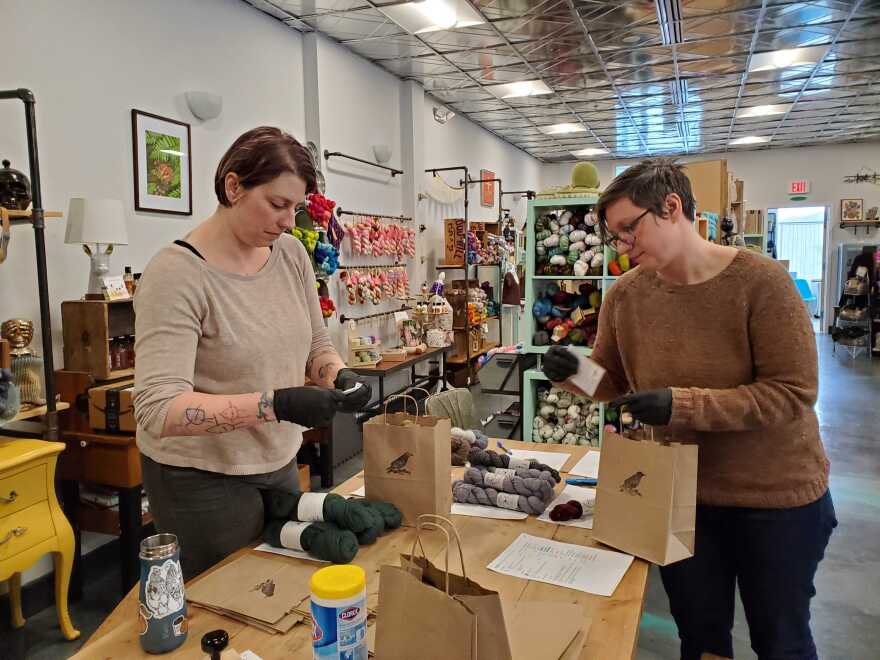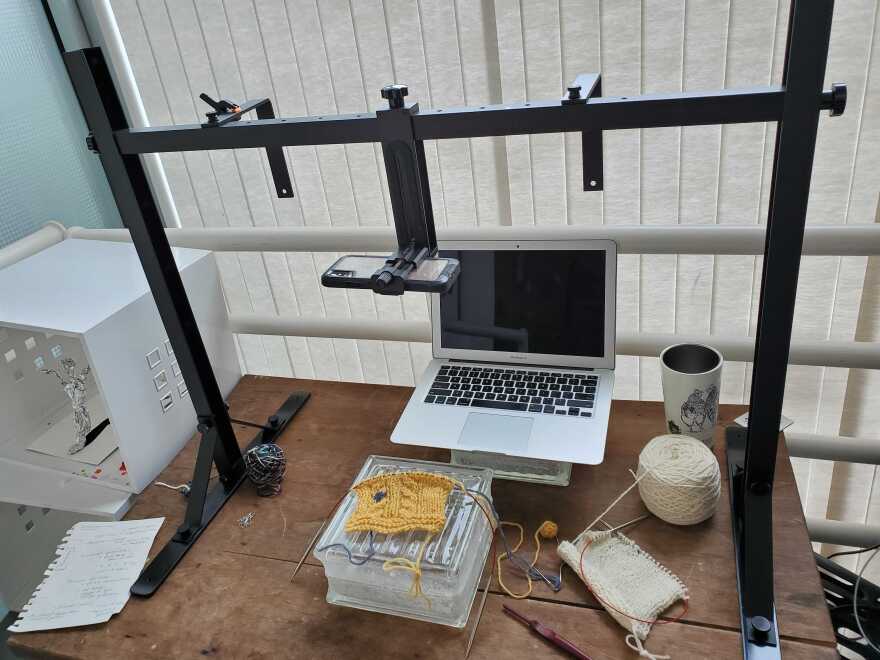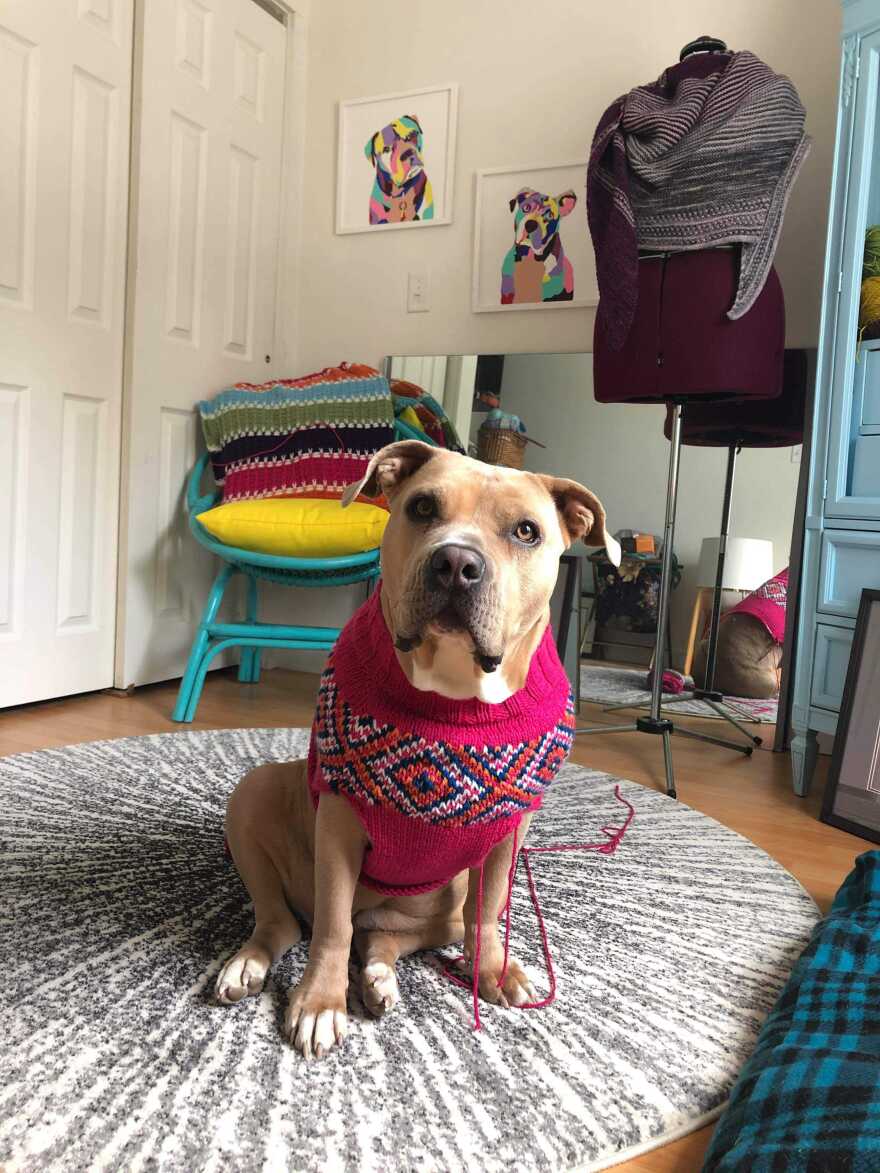Coronavirus has forced the closure of restaurants, stores and other places where we gather. And with so many people staying home, hobbies are becoming more important.
For some, knitting, crocheting and sewing have been ways to stay grounded and connected with others - and it's also a way to help those working on the frontlines of this pandemic.
At Scratch, a yarn shop in Lebanon, five plush, colorful couches sit facing each other, surrounding a turquoise painted hearth. This is the heart and soul of the place, where people would sit and make things together, drinking tea or coffee, and talking -- before the time of social distancing.
“So we’ve heard about relationships and breakups, there’s work dramas, there’s help on what you’re working on,” said Karen Zook, one of Scratch’s co-owners.
She says these connections were just part of the daily rhythm of being a home base for knitters and crocheters in the Upper Valley.
Since last week, Scratch is a lot quieter. Zook and her co-owner, Jessica Giordani, closed the shop to the public due to COVID-19.
But they’re still open for orders and delivery.
Their mornings now start like this: Zook and Giordani put on some music – on Monday it was Lizzo -- and examine the day’s orders that are laid out on a table.
Before they get started, both put on a pair of gloves.
“So that I’m not touching the inventory that needs to go out to people,” says Giordani.

The shop is making sure customers are well-stocked since they can’t come in and buy yarn. They deliver to people within a 20 mile radius of Lebanon and also offer curbside pick-up.
Making these deliveries around the Upper Valley reminds Giordani that her job -- selling yarn, teaching people how to knit or crochet -- is emotional in unexpected ways.
She says people come in with big goals, like making a piece for a new baby or a grandmother, or simply something cozy for themselves.
“And helping people pick the things that will be perfectly soft or long term durable or just the perfect shade of raspberry is an intense connection with people, it’s kind of like feeding people,” she said.

Thursday nights and Saturday afternoons are when people used to come to those plush couches at the shop to work on their projects, side by side.
Last Thursday, that happened via a video call.
“It was fantastic. Cats running over people’s shoulders and dogs popping their faces on the screen,” she said. “It was moments of levity that everyone definitely needed.”
Everybody seemed to be working on one thing.
“Sweaters, so many sweaters,” Zook said. “We’re going to have to do a fashion show with everybody’s social distancing handmade wardrobe once this is over.”

One person on that Thursday call was Melania Lavric from Grantham. She’s been working on a blanket and a new sweater.
“It’s this lovely, happy cheerful aqua color. It feels really nice to be knitting with it right now,” Lavric said.

She says her day-to-day life hasn’t drastically changed during the coronavirus pandemic. But as a generally anxious person, knitting is her go-to. Lavric says it’s meditative and by the end, she’s made something.
“I also have this physical object I can wear or give someone else to wear that reminds me that I’m able to move through difficult situations and come out of them with something beautiful,” she said.
Courtney McLelland, another knitter, has had a harder time. Last week, like other service employees, she lost her restaurant job, although she’s still working as an office manager for a chiropractor’s office.
“I forsee a lot of knitting in my future until that opens back up,” she said.

Right now, McLelland is working on two sweaters: one for her sister, and another for her 7-year-old pitbull mix dog, Petunia.
It’s hot pink.
“Multi-color, color-work on the chest. It’s kind of like orange and white, and there's green in there,” she said. “It’s kind of intricate for a dog sweater.”
While knitting has been a way for many to get through this strange time, others, like Cherylynn Calfy from White River Junction Vermont, have put down their knitting needles to focus on a different project: sewing cloth masks to donate to hospitals.
“I was a little excited because I’d been hearing so much about this shortage for supplies and the danger of running out,” she said.
Hospitals across the state, including Dartmouth-Hitchcock Health, have been asking for donations of gloves, gowns and masks in response to a nationwide shortage.
And the Centers for Disease Control and Prevention say hand sewn masks can be used as a last resort.
Dartmouth-Hitchcock, like other hospitals, is accepting these masks as donations. After sanitizing them, they say they’ll first be handed out to patients, visitors and non-frontline healthcare staff.
That way the medical masks can go to those frontline healthcare workers.
For Calfy and others, this is a way they feel they can help out from home, with their skills, threads and fabrics.
“Having a hobby to focus on is not only distracting, but it is uplifting,” she said.
Especially when you’re not doing it alone.







